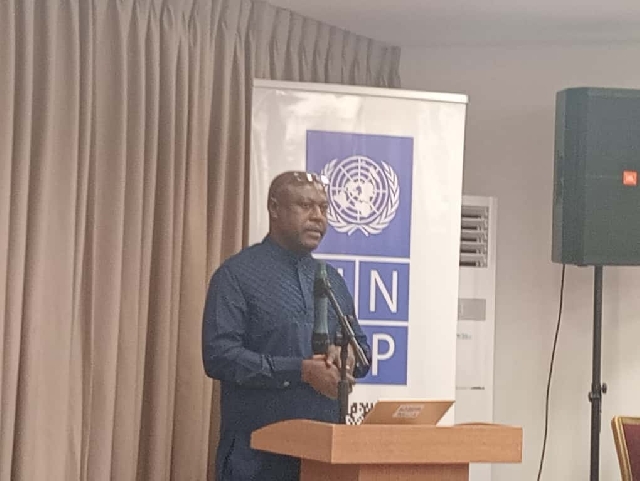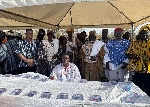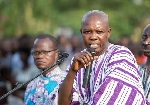UNDP consultant urges allocation of petroleum and mining taxes for disaster risk management
 Prof. Asaah Mohammed
Prof. Asaah Mohammed
A university lecturer and consultant to the United Nations Development Programme (UNDP) under its Insurance and Risk Finance Facility (IRFF), Prof. Asaah Mohammed, has urged the government to allocate a percentage of revenue from the petroleum and mining sectors to fund disaster risk management in Ghana.
According to Prof. Mohammed, activities within these two key sectors are closely linked to potential disasters, making it essential to establish a dedicated disaster management fund to respond effectively when crises occur.
Citing the Appiatse explosion as an example, he noted that the absence of such a fund contributed to the government’s financial struggles in redeveloping the town after the tragic incident.
“If such a fund had existed, the government would not have faced so many challenges in rebuilding Appiatse,” he explained, describing the proposal as “a way of thinking outside the box” to ensure sustainable disaster financing.
He suggested that 2 to 3 percent of these taxes can be made available for disaster risk management
Prof. Mohammed made the recommendation during a workshop in Accra, where stakeholders met to review and provide input on the draft framework for disaster risk management being developed by the National Disaster Management Organisation (NADMO).
He explained that the framework aims to strengthen NADMO’s capacity to conduct simulation exercises, improve disaster preparedness, and enhance risk management systems nationwide.
“If this proposal is adopted, it will significantly improve Ghana’s approach to managing disaster risks,” he emphasised, further clarifying that a disaster occurs when there is loss of lives and property, whereas incidents without such losses remain hazards.
The Head of the Environment and Climate Cluster Dr. Abdul-Razak Saeed, at UNDP, commended stakeholders for their contributions to the draft framework and stated how important their objective inputs will go a long way to enrich the final document to be produced.
He stressed the need for inclusive insurance and financial systems to protect vulnerable populations from the financial impact of disasters.
“When market fires or floods occur, it is the ordinary woman in places like Nima who suffers the most,” Dr. Saeed observed.
“We must ensure that market women and other at-risk groups have access to financial solutions to provide relief in times of crisis.”
Source: Classfmonline.com/cecil Mensah
Trending News

Farmers' Day: Overall best farmer takes home GHS 1.2 million, tractor and full farm package
09:53
Kumawu MP donates to support Farmers’ Day celebration in his district
10:14
U/E: Tensions rise over Upper East Regional Airport Project as Alagumbe Association accuses Minister of sidelining key stakeholders
10:48
Foreign Affairs Minister welcomes resumption of Delta’s Accra–Atlanta flights, praises new Ghana–Canada route
14:18
Ghana records 12,600 AIDS-related deaths annually-Gov't says on World AIDS Day
13:11
Eminent Africans demand release of Guinea-Bissau election results
08:15
PAOG warns prospective pilgrims: Saudi Arabia to enforce strict permit regulations for Hajj 2026
09:49
Bawumia gets rainy endorsements ahead of NPP Primary in 2026
10:38
High Court explains why it ordered full Kpandai parliamentary rerun
13:05
Avenor must unite for development — First Deputy Speaker Bernard Ahiafor urges at 2025 Tutudo festival
12:21




